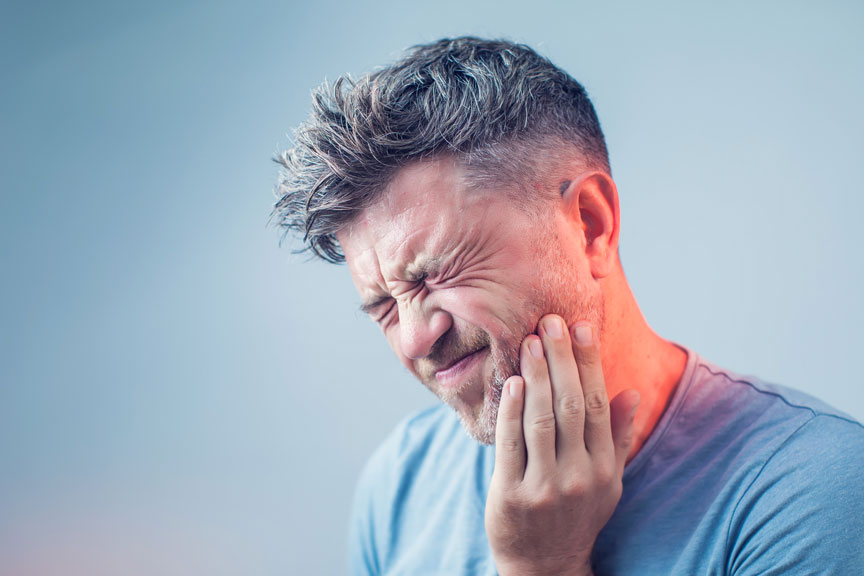
Tooth Pain: Common Causes and Solutions
Dealing with tooth pain can be distressing, affecting your daily life and signaling potential dental issues.
Identifying and addressing tooth pain is critical for your long-term oral health.
Here’s a closer look at some of the primary reasons why your teeth might be hurting:
1. Dental Decay and Cavities
Tooth decay, which often leads to cavities, is a major culprit behind tooth pain. When plaque—a sticky bacterial film—builds up on your teeth, it produces acids that wear away the enamel and create cavities.
Initially, decay may not cause pain, but as it progresses and reaches the sensitive inner layers of the tooth, you may start experiencing sensitivity to hot, cold, or sweet foods. Without treatment, decay can worsen, causing severe toothaches and potential infections.
2. Gum Disease and Its Effects
Gum disease, including gingivitis and periodontitis, develops when plaque and tartar buildup along the gumline irritate and inflame the gums. Early signs may include gums that bleed easily and feel tender. As gum disease progresses, it can lead to gum recession and exposed tooth roots, resulting in sensitivity and pain. Advanced stages may even lead to tooth loss if not managed by a dental professional.
3. Dental Abscesses
Dental abscesses are pockets of pus caused by bacterial infection, typically forming at the root of a tooth or between the tooth and gum tissue. They often cause severe, throbbing pain that can radiate to the jaw, ear, or neck.
Other symptoms may include fever, swelling, and a bad taste in the mouth. Immediate dental attention prevents the infection from spreading and causing more serious complications.
4. Tooth Fractures
Tooth fractures can occur due to trauma, teeth grinding (bruxism), or biting down on hard objects. The severity and location of the fracture determine the level of pain experienced, particularly when chewing or exposed to temperature changes. Some fractures are not visible without dental x-rays, requiring professional diagnosis and appropriate treatment.
5. Managing Tooth Sensitivity
Tooth sensitivity manifests as sharp, sudden pain triggered by hot, cold, sweet, or acidic foods and drinks. It can be caused by exposed tooth roots due to gum recession, enamel erosion from acidic substances, or abrasion from aggressive brushing or grinding. While desensitizing toothpaste and good oral hygiene practices can help alleviate sensitivity, visit the dentist for evaluation and treatment if you experience persistent symptoms.
Tooth Pain Treatment in Lansdale, PA from Kessler Dental
Whether your tooth pain is occasional or persistent, address it quickly to maintain good oral health and prevent more serious dental issues. Our dentist in Lansdale provides personalized care and effective treatment options for dental pain. Don’t let tooth pain disrupt your life—schedule a consultation today to find the best solutions for achieving a healthier, pain-free smile.







